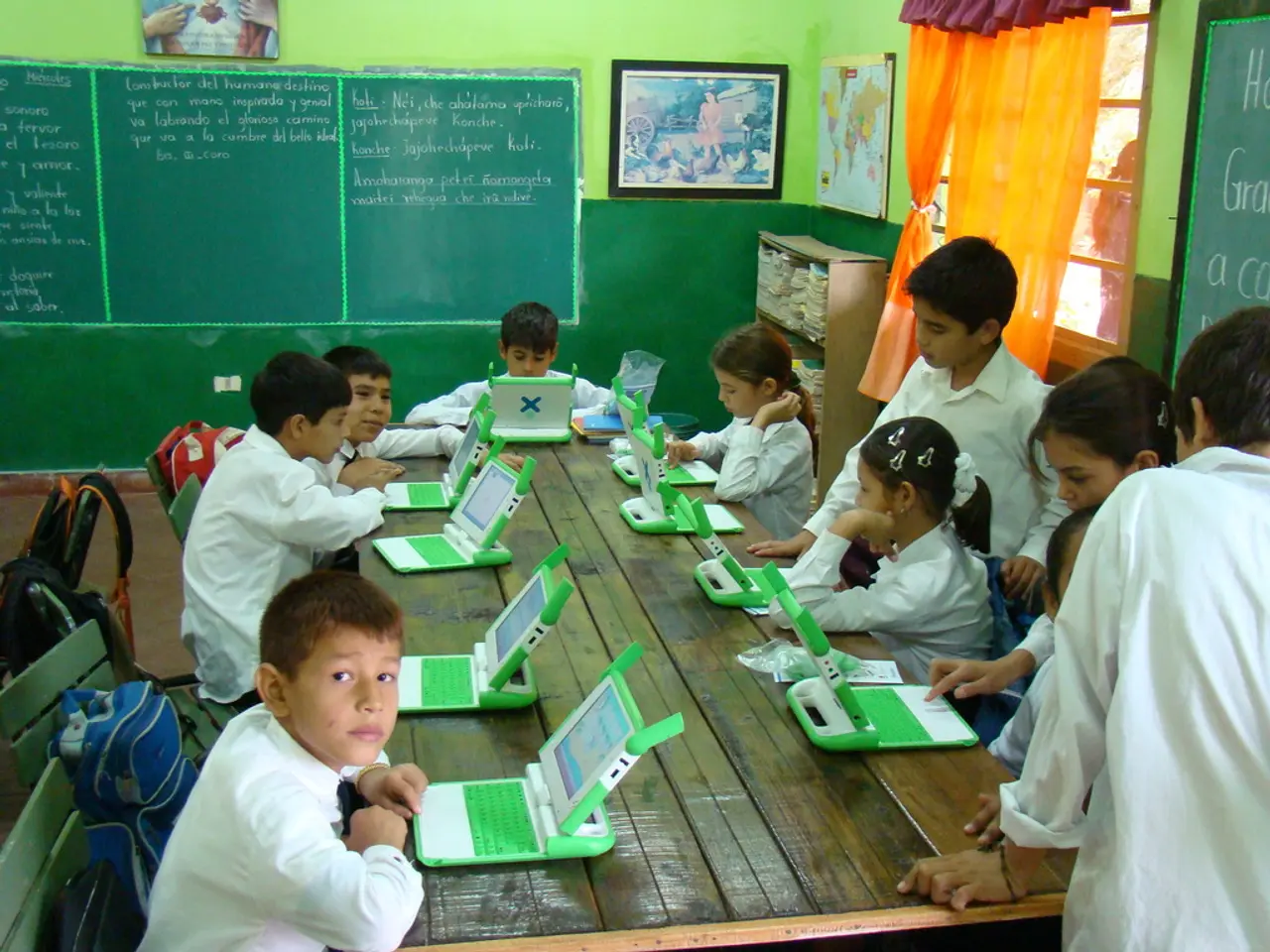Educational leader Randi Weingarten discusses children's screen time, artificial intelligence, and reaching out to conservatives
In a significant shift, the American Federation of Teachers (AFT), led by President Randi Weingarten, is broadening its horizons to engage with teachers and education activists who may not always align with the union's views. Weingarten emphasizes the importance of reaching out to diverse voices in shaping the future of education.
Meanwhile, New York City has implemented a bold move by banning smartphone use in schools. This experiment, aimed at restricting bell-to-bell smartphone usage, is expected to provide valuable insights into the effectiveness of such restrictions. The ban is designed to encourage students to interact with each other during recess, rather than relying on their phones.
The AFT is advocating strongly for privacy protections in the use of artificial intelligence (AI) in schools. They have called upon the U.S. Department of Education to establish transparent policies about data collection, limit data sharing, and implement stringent security measures to prevent misuse of personal information. The union is also advocating for digital agreements with companies on privacy, safety, and ethics.
Weingarten underscores the importance of educators understanding the world they're in, including the future of AI and technology in education, to create a world they want. In line with this, the AFT dedicated a significant portion of discussions at their biennial professional development conference to teaching educators how to use technology, particularly generative AI tools, effectively.
To further this pursuit, the AFT has launched an academy to train educators about AI. Weingarten herself has included a clause in her book contract to prevent text from being used to train AI.
The AFT is also emphasizing the need for 'safe and welcoming schools' as a top priority this year. They believe that student well-being should be a key focus, and the success of New York City's school smartphone ban could be measured by increased attention, happiness, attendance, and fewer disciplinary issues among students.
Moreover, the long-term success of the smartphone ban may be evaluated through student achievement data, but immediate success may be found in student well-being. The AFT is also considering reducing reliance on screens in education due to screen-related attention issues.
In a bid to ensure the union's members keep 'a seat at the table' in discussions around education policy and technology, Weingarten is actively seeking to engage with people who don't normally want to listen. She aims for a real conversation about education policies, hoping to bridge gaps and foster understanding.
Notably, the AFT is the fastest-growing union in America, reflecting a growing recognition of its role in shaping the future of education. With its focus on privacy, student well-being, and effective technology use, the AFT is setting a compelling example for the education sector.
Read also:
- Latest Principal Information Bureau Announcements on 12-09-2025
- Energy Efficiency in Housing: Implementing Gender-Targeted Strategies for a Sustainable Future (Part 2)
- Human Bacteria Unveil Fresh Understandings Regarding Human Decision Processes
- Long-term financial assessment for smart boiler system selection within the context of USGBC LEED Green Associate certification






